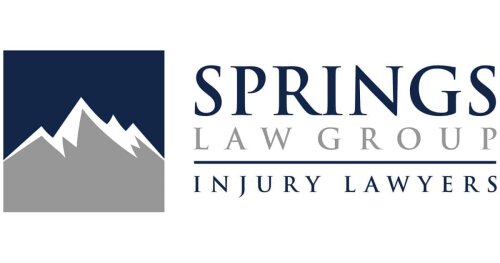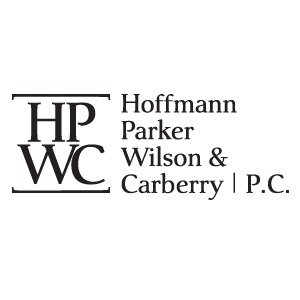Best Antitrust Litigation Lawyers in Colorado
Share your needs with us, get contacted by law firms.
Free. Takes 2 min.
Or refine your search by selecting a city:
List of the best lawyers in Colorado, United States

About Antitrust Litigation Law in Colorado, United States
Antitrust litigation refers to legal actions involving violations of competition laws designed to protect consumers and ensure fair business practices. In Colorado, antitrust litigation typically centers around claims of monopolization, collusion, price fixing, bid rigging, and other anti-competitive conduct. Both federal and state laws apply, offering protections and enforcement mechanisms against businesses that engage in unfair competition or abuse their market power. The main goal of antitrust law is to promote healthy market competition, prevent the formation of monopolies, and protect consumer welfare.
Why You May Need a Lawyer
Antitrust cases are often complex, involving detailed economic analyses and interpretations of legal statutes. Individuals or businesses may need legal assistance in several situations, including:
- Suspecting another company of unfairly driving you out of business or manipulating prices.
- Being accused of participating in anti-competitive activities such as price fixing, market allocation, or bid rigging.
- Suffering from the anti-competitive conduct of larger competitors that prevent market entry or free competition.
- Negotiating mergers, acquisitions, or joint ventures that could trigger antitrust scrutiny.
- Responding to investigations by government agencies like the Department of Justice or Colorado Attorney General's Office.
- Seeking damages for losses arising from anti-competitive actions.
A lawyer experienced in antitrust litigation can help you navigate the legal landscape, gather and analyze evidence, and represent your interests in court or negotiations.
Local Laws Overview
Colorado enforces both federal antitrust statutes and its own state-level laws. The primary federal laws include the Sherman Act, the Clayton Act, and the Federal Trade Commission Act. At the state level, the Colorado Antitrust Act provides additional grounds for legal action and enforcement by the Attorney General or private parties.
Key aspects of antitrust law in Colorado include:
- Prohibition of Cartels and Collusion: Agreements between competitors to fix prices or divide markets are illegal.
- Monopolization: Companies with significant market power may not use that power to eliminate competition unlawfully.
- Merger Review: Mergers or acquisitions may be scrutinized if they threaten to reduce competition significantly in the Colorado market.
- State Enforcement: The Colorado Attorney General has authority to investigate and prosecute antitrust violations within the state.
- Private Actions: Businesses and individuals harmed by anti-competitive conduct can file lawsuits seeking damages and injunctive relief.
Colorado courts often look to federal antitrust law for guidance but may interpret state statutes independently to protect competition in local markets.
Frequently Asked Questions
What is antitrust litigation?
Antitrust litigation involves lawsuits or legal proceedings relating to violations of laws designed to ensure fair competition in the marketplace. These can include claims of monopolization, price fixing, or other anti-competitive practices.
Who enforces antitrust laws in Colorado?
Both federal agencies like the Department of Justice and Federal Trade Commission, as well as the Colorado Attorney General, have authority to enforce antitrust laws. Private parties can also pursue claims in court.
What types of business practices are considered illegal under antitrust law?
Illegal practices include price fixing, bid rigging, market allocation, abuse of monopoly power, and certain restrictive agreements that prevent or reduce competition.
Can individuals file antitrust lawsuits, or is it only for businesses?
Both individuals and businesses that have been harmed by anti-competitive activities can file antitrust lawsuits in Colorado state or federal courts.
What damages are available in an antitrust lawsuit?
Plaintiffs may recover actual damages suffered as a result of anti-competitive conduct. In some cases, courts may award triple damages (treble damages) plus attorneys' fees.
How long do I have to bring an antitrust claim in Colorado?
Time limits, known as statutes of limitations, apply and may differ depending on the specific claim. For many federal antitrust claims, the limit is four years, but it is important to consult a lawyer for guidance on your specific situation.
What happens if I am under investigation for violating antitrust laws?
If you or your business are being investigated, it is crucial to seek legal representation immediately. An attorney can help protect your rights, respond to inquiries, and guide you through the investigation process.
Are certain industries more likely to face antitrust scrutiny in Colorado?
Industries with few competitors or significant market concentration, such as healthcare, energy, and technology, may face increased scrutiny. However, antitrust laws apply to all sectors.
What is the difference between federal and Colorado state antitrust law?
Federal antitrust laws apply nationwide and are enforced by federal agencies, while Colorado's state laws address anti-competitive conduct specifically within the state. They often overlap but can differ in procedure and interpretation.
How can a lawyer help me with an antitrust issue?
An experienced lawyer can evaluate your case, explain your rights, gather evidence, represent you in negotiations or court, and help you comply with complex legal requirements.
Additional Resources
If you need more information or assistance with antitrust matters in Colorado, these resources may be helpful:
- Colorado Attorney General's Office: Handles enforcement actions and provides public information on state antitrust laws.
- United States Department of Justice Antitrust Division: Enforces federal antitrust laws and provides policy guidance.
- Federal Trade Commission (FTC): Investigates and prevents unfair business practices, including issues related to competition.
- Local Bar Associations: Many Colorado bar associations have resources or directories to help you find experienced antitrust counsel.
- National and Local Legal Aid Organizations: Some offer guidance or assistance for low-income individuals or small businesses facing antitrust-related issues.
Next Steps
If you believe you may have an antitrust issue or have been contacted by investigators, consider the following steps:
- Gather all relevant documentation, such as contracts, emails, and records of communications with competitors or regulators.
- Write down a detailed summary of your concerns or the events in question.
- Contact a lawyer with experience in antitrust litigation in Colorado for an initial consultation. Many offer free consultations to evaluate your situation.
- If your business is involved, ensure your internal legal or compliance teams are informed and can assist with gathering information.
- Continue to comply with all applicable laws and avoid discussing the issue with others until you have received legal advice.
Taking prompt and informed action can help protect your interests and ensure you are properly represented in any legal or regulatory proceedings.
Lawzana helps you find the best lawyers and law firms in Colorado through a curated and pre-screened list of qualified legal professionals. Our platform offers rankings and detailed profiles of attorneys and law firms, allowing you to compare based on practice areas, including Antitrust Litigation, experience, and client feedback.
Each profile includes a description of the firm's areas of practice, client reviews, team members and partners, year of establishment, spoken languages, office locations, contact information, social media presence, and any published articles or resources. Most firms on our platform speak English and are experienced in both local and international legal matters.
Get a quote from top-rated law firms in Colorado, United States — quickly, securely, and without unnecessary hassle.
Disclaimer:
The information provided on this page is for general informational purposes only and does not constitute legal advice. While we strive to ensure the accuracy and relevance of the content, legal information may change over time, and interpretations of the law can vary. You should always consult with a qualified legal professional for advice specific to your situation.
We disclaim all liability for actions taken or not taken based on the content of this page. If you believe any information is incorrect or outdated, please contact us, and we will review and update it where appropriate.
Browse antitrust litigation law firms by city in Colorado
Refine your search by selecting a city.













